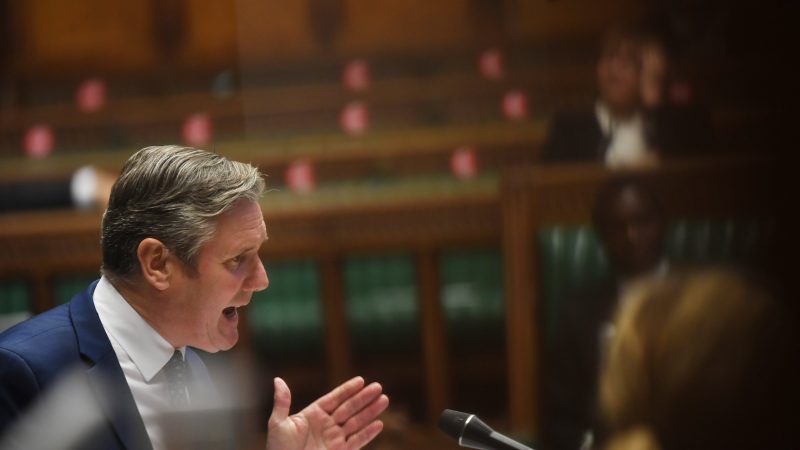
Government communications are not improving. You would have thought that they would be learning from their mistakes during the early stages of the coronavirus crisis, but the same problems keep reappearing. A large proportion of people living in this country have been told via a number of front pages this morning that pubs and restaurants are set to be shut again. Boris Johnson is predicted to announce on Monday that hospitality will close “in northern England”, which will come alongside news of financial support for those living under local restrictions and a tiered system designed to clarify rules. As Jennifer Williams pointed out last night: “It isn’t good enough to brief vaguely about ‘people in the north of England’.” And local leaders are complaining that as usual there was no consultation, with Andy Burnham concluding: “Millions of lives affected by Whitehall diktat.”
Despite this calamitous approach led by Johnson, Keir Starmer struggled somewhat at the latest Prime Minister’s Questions. He highlighted that 19 out of 20 areas in England under local restrictions have actually seen an increase in infection rates: they can’t leave lockdown because their Covid-19 problem is getting worse, not better. The Labour leader called on the PM to “level with” those communities – just what is going wrong? This point has made front pages. He also rightly demanded standardisation: what are the criteria for why local rules are imposed, which measures determine whether they can leave lockdown, do you have a plan for any of this? But Starmer faced an unusually well-prepared Johnson, who picked up on Labour’s abstention on the ‘rule of six’ vote this week and use it to portray the opposition party as flip-flopping.
Starmer said Labour does definitely back the rule of six. But his party didn’t vote in favour because: “This is a government with a majority of 80. It doesn’t need Labour to get its business through.” The practicalities of Commons voting during Covid are a nightmare. And you can argue that Labour was staying out of this issue to allow the Tories to fight amongst themselves. But when the opposition party does have a clear and firm position on something, it seems absurd to have it buried under ‘Captain Hindsight’ accusations. When Starmer attacked the PM over the 10pm hospitality curfew, Johnson similarly replied: our argument for it, without scientific evidence, was enough for you to back it two weeks ago.
In this way, Labour is in the difficult position of not being in government. Without the Scientific Advisory Group for Emergencies (SAGE) at its disposal, should the party listen to its own set of experts? The leadership considers that option to be too risky, and Starmer is wary of muddying the crucial public health message. Should Labour create a new rule whereby it will only back Covid rules if the government shows a scientific basis for them? But ministers could simply refuse, and Labour would be portrayed as unconstructive.
It is a very tricky situation, though it would help if Labour had a stronger theme running through its interventions: a line like the decisions being made unilaterally by “men sitting behind desks in Whitehall”, as Lisa Nandy put it during the leadership election, could be helpful. The arguments that the Tory ‘levelling up’ agenda has disappeared and even been put into reverse, and that there has been a dangerous lack of democratic input during Covid, should be made again and again.
Sign up to LabourList’s morning email for everything Labour, every weekday morning.



More from LabourList
Letters to the Editor – week ending 22 February 2026
‘The coastal towns where young people have been left behind by Whitehall’
‘How Labour is modernising transport in Wales with fairness at its heart’